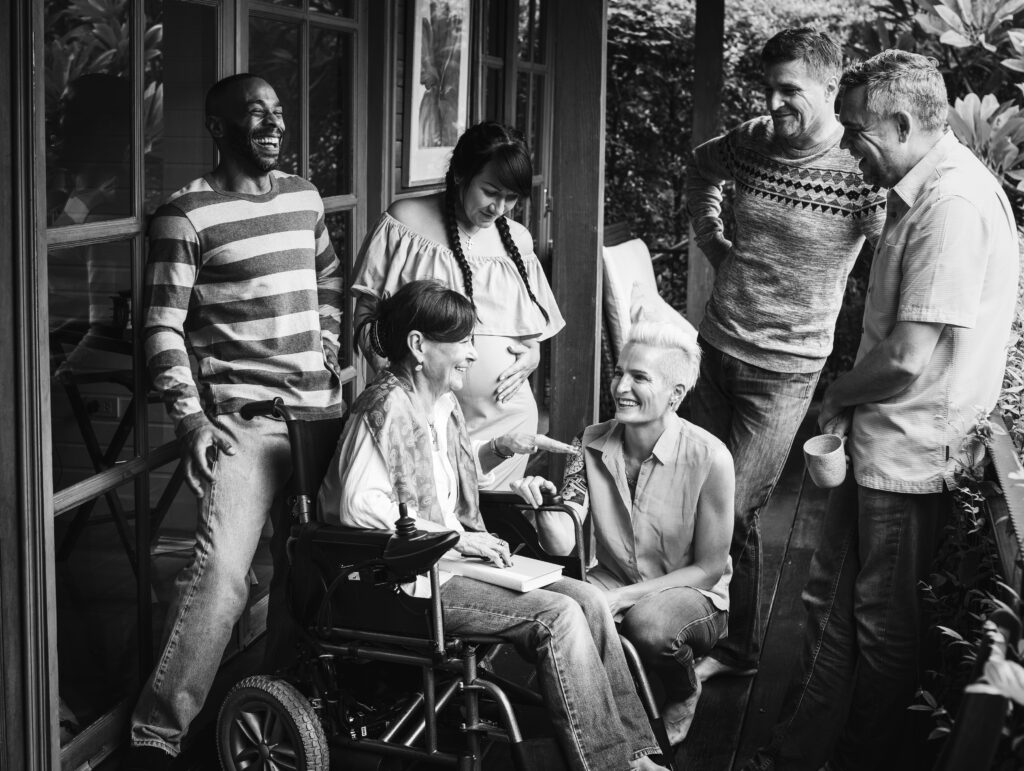Victoria Coren Mitchell is a familiar, witty, and generous presence on British television and in print. When people search for “victoria coren mitchell illness,” they’re often looking for clarity, kindness, and context—not gossip. This article focuses on the human side of that interest. It centres empathy, uses what has been publicly shared, and avoids speculation. It also offers practical guidance on how to read health-related stories about public figures with care.
Plainly put: there is no duty for a public person to share private medical information. That’s true for anyone, and it remains true even when curiosity spikes.
A careful starting point
The phrase “victoria coren mitchell illness” appears often across search pages, but volume isn’t the same as substance. Interest grows whenever a presenter steps back from a programme recording, appears less frequently on air, or mentions being “under the weather.” None of that automatically points to a diagnosis or a public disclosure.
Responsible coverage distinguishes between verified facts and the blank space where privacy belongs.
Who she is
Victoria Coren Mitchell is a writer, broadcaster, and professional poker champion. Viewers know her as the long-standing host of Only Connect on BBC Two, where her dry humour and warmth have become part of the show’s identity. Readers know her columns and essays, and poker fans know her tournament pedigree and memoir writing.
That blend—serious mind, playful voice—is why her audience cares about more than projects and ratings. It’s why “victoria coren mitchell illness” can trend even when there’s little or nothing new to report.
Why attention turns to health
When someone is in the public eye, routine things—missed episodes, changed schedules, a quieter social feed—can look like signals. In reality, they’re often ordinary life events: parenting, travel, work commitments, or simple rest. Sometimes they are health-related; sometimes they’re not. The point is that those possibilities belong to the person, not to our assumptions.
Curiosity is human; entitlement is not. The ethical response is patient, proportionate attention.
What’s been said publicly
As of the most recent public reporting, there has been no official, detailed disclosure of a specific “victoria coren mitchell illness.” If Victoria Coren Mitchell, her representatives, or her broadcasters have something to share about her health, they typically do so in clear, on-the-record ways. Without that, the right answer is to say “we don’t know”—and not to fill the gap with theories.
If a presenter mentions being unwell in passing, that’s a moment for well-wishes, not a licence to diagnose. If a programme adjusts a schedule, that’s a production note, not a medical chart.
If it’s important and intended for the public, it will be stated plainly in official channels.
What we don’t know
We don’t know private medical details. We don’t know timelines that haven’t been shared. We don’t know causes behind any ordinary professional rescheduling unless the people involved decide to tell us.
Listing unknowns isn’t evasive; it’s honest. It prevents rumor from pretending to be reporting.
Why uncertainty is okay
Privacy is not a puzzle for the internet to solve. Health is personal, variable, and often boringly ordinary. When there’s a meaningful update that belongs to the public, it usually appears in a straightforward statement. Until then, uncertainty is a sign of respect, not an information failure.
Living in the spotlight
Public work can amplify everyday pressures. Beyond the lights, there are families, commitments, deadlines, and the basic rhythms of being human. For someone like Victoria Coren Mitchell, the audience is large and affectionate—but large audiences can also magnify speculation.
The humane approach to “victoria coren mitchell illness” is to remember there’s a person on the other end of our curiosity. Boundaries are part of care.

Language and care
Words matter. Health reporting benefits from calm, precise language.
- Prefer person-first phrasing: “Victoria Coren Mitchell has spoken about…” rather than labels.
- Avoid armchair diagnoses or dramatic metaphors that suggest a struggle she has not described.
- Quote carefully and in context if you reference any statement she has actually made.
Good language reduces harm.
How readers can help
Everyone shapes the information environment. That includes fans of Only Connect and readers of her work.
- If you see a headline about a “victoria coren mitchell illness,” click through and check whether it cites a primary source.
- If it doesn’t, step back. Don’t share it.
- If someone asks for updates, recommend patience and point to official channels rather than rumour threads.
A kind audience is a protective one.
Impact on work
Viewers sometimes connect health rumours to programming changes. Sometimes a host records several episodes in a block; sometimes they don’t. Sometimes a show pauses for scheduling reasons unrelated to the presenter. The industry is full of moving parts.
Unless there is an explicit, official note tying a schedule change to health—and sometimes there isn’t—it’s wise not to infer cause from coincidence. Work is work; private life is private.
Checking sources
A quick way to separate noise from news:
- Is there a named source with direct quotes?
- Is the statement dated and attributable to the person or a recognised representative?
- Is the claim repeated across multiple reputable outlets, or is it a single unsourced post?
If the answer is “no” to those questions, then the claim about a “victoria coren mitchell illness” is likely just background chatter. It deserves your restraint.
The human factor
The heart of this story isn’t diagnosis; it’s dignity. A presenter known for intelligence and humour is also a person with boundaries. The kinder choice is to prioritise wellbeing over updates and to accept that some doors remain closed by design.
Compassion looks like patience, not pressure.
A note on public figures and privacy
Public roles do not cancel private rights. Health disclosure is a personal decision. Many well-known people share nothing at all; some share a little; a few share a lot. All of those choices are valid.
When the search term “victoria coren mitchell illness” surges, the healthiest response is to meet it with proportion and care—just as you would hope others would do for you.
If a timeline is needed
A timeline can be useful only when there are reliable, dated entries that add clarity. In the absence of such entries, a timeline is just a magnet for guesswork. Where there’s nothing verified to add, the most accurate timeline is a single line: “No public medical disclosures have been made.”
What support looks like
Support isn’t complicated. It looks like enjoying the work, sending well-wishes without demands, and respecting pauses. It looks like resisting the urge to fill silence with stories. It looks like remembering that no one owes the world their medical history.
Why this matters
The way we talk about health—especially the health of people we recognise—shapes our wider culture. If we can handle the “victoria coren mitchell illness” conversation with calm and care, we make it easier for everyone to set boundaries, ask for help when needed, and remain whole in public.
| Key | Value |
|---|---|
| Name | Victoria Coren Mitchell |
| Profession | Writer, broadcaster, poker champion |
| Known for | Hosting Only Connect (BBC Two) |
| Writing | Columns and essays; books including memoir work |
| Style | Wry, thoughtful, humane |
| Nationality | British |
| Family | Married; parent |
| Notable traits | Intellectual curiosity, dry humour |
| Public presence | Television, print, events |
| Privacy stance | Shares selectively; values boundaries |
| Health status (public) | No detailed illness disclosure |
| Guiding principle | Dignity, accuracy, empathy |
Practical media literacy
Before you repeat a claim about a “victoria coren mitchell illness,” take sixty seconds:
- Find the origin of the statement. If the trail ends at a screenshot or anonymous forum, stop.
- Look for a timestamp and a name. If neither is present, it isn’t a source.
- Compare language. Genuine statements are plain and precise; rumours are vague and emotive.
This small habit protects people you admire from being turned into content.
What to avoid
- Don’t interpret normal life—missed events, changed plans—as proof of illness.
- Don’t conflate a presenter’s on-air persona with their private obligations.
- Don’t pressure family members or colleagues for updates.
Care is quieter than conjecture.
When news changes
If there ever is a meaningful update that belongs in public, it will travel quickly through reliable outlets and official voices. At that point, summarising the facts with accuracy and context is appropriate. Until then, acknowledgment of not knowing is the most professional stance.
Have Victoria Coren Mitchell or her representatives shared specific health details?
Short answer
No detailed, on-the-record disclosure exists about a specific “victoria coren mitchell illness.” If something important needs public attention, it will be shared clearly via official channels.
Why this matters
When no formal statement exists, speculation grows to fill the silence. Respecting the absence of detail prevents harm, protects dignity, and keeps the focus on verified facts rather than guesswork.
Practical steps
- Treat every unverified claim as unconfirmed.
- Wait for plain, attributed statements from the presenter or recognised broadcasters.
- If you can’t identify a named source and a date, don’t repeat the claim.
Where should I look for reliable updates?
Short answer
Rely on official channels: statements attributed to Victoria Coren Mitchell, her recognised representatives, or broadcasters connected with her work. Avoid rumor mills and unsourced “insider” posts.
Why this matters
Health information is sensitive. Reputable sources use clear language, signatures, and timestamps. That’s how you tell the difference between a genuine update and background noise about “victoria coren mitchell illness.”
Practical steps
- Check for attribution: who said it, where, and when.
- Prioritize broadcaster announcements and clearly verified profiles.
- Ignore aggregator sites that rewrite without naming an original source.
How can I verify a claim about “victoria coren mitchell illness” in 60 seconds?
Short answer
Use a quick, repeatable checklist to separate signal from noise.
A 60‑second checklist
- Source: Is there a named person on record, or just “a source close to” language?
- Evidence: Is there a direct quote or only paraphrase and speculation?
- Timestamp: Does the post or article show a date and time?
- Consistency: Do multiple reputable outlets report the same, with the same facts?
- Intent: Is the headline emotional or sensational compared to the body text?
What to do next
If any box fails, treat the claim as unverified. Do not share it. If all boxes pass, read the original statement in full before forming a view.

victoria coren mitchell illness
What red flags should I watch for in coverage?
Short answer
Vagueness plus urgency is a classic warning sign.
Common red flags
- Anonymous sourcing without context (“insiders say”).
- Screenshots of posts with no link, no profile, or cropped context.
- Overheated words (“shocking,” “heartbreaking”) paired with thin facts.
- Clickbait headlines that promise a revelation but deliver none.
- Articles that repeat the phrase “victoria coren mitchell illness” many times without adding verified information.
What to do instead
Close the tab, decline to share, and wait for clear attribution. Silence is sometimes the most accurate response.
Has her work schedule changed for health reasons?
Short answer
Unless there is an explicit statement connecting a schedule change to health, do not assume a link.
Why this matters
Television production is complex. Episodes can be recorded in blocks, postponed for programming reasons, or reshuffled for events and holidays. None of that proves a “victoria coren mitchell illness.”
Practical steps
- Look for a direct note from a broadcaster if a change is announced.
- Avoid connecting dots that the involved parties have not connected.
- Remember that personal life, parenting, travel, and writing can all affect scheduling.
How should fans respond respectfully?
Short answer
With empathy, patience, and restraint.
Do
- Send kind, non-intrusive well‑wishes when appropriate.
- Focus on the work you enjoy: Only Connect, writing, and other projects.
- Encourage others to rely on official statements about any “victoria coren mitchell illness.”
Don’t
- Press family or colleagues for private details.
- Amplify rumors or “theories.”
- Treat a lack of updates as a mystery to solve.
Why this works
Compassion lowers the temperature of the conversation, respects boundaries, and keeps the person—not the rumor—at the center.
Why is it okay not to know?
Short answer
Because health is private, and privacy is protective.
The bigger picture
Not knowing is uncomfortable, but it prevents harm. Waiting for clear, voluntary disclosures respects autonomy. When people are given space, they’re likelier to share what they want, when they want.
Useful reframes
- Uncertainty does not mean concealment; it often means recovery or ordinary life.
- Curiosity is human; acting on it at someone else’s expense isn’t necessary.
- The most accurate statement about “victoria coren mitchell illness” right now may be: there is no public medical detail to report.
What language should we use when discussing health?
Short answer
Use person‑first, non‑diagnostic, non‑dramatic language.
Do
- Say “Victoria Coren Mitchell has not shared specific health details.”
- Use calm, precise wording: “public statements,” “official update,” “no confirmation.”
Avoid
- Armchair diagnoses and medical labels.
- Battle metaphors (“fighting,” “losing a battle”) unless the person uses them.
- Vague insinuations that invite speculation about a “victoria coren mitchell illness.”
Why it matters
Words shape attitudes. Careful language reduces stigma and protects dignity.
If new information appears, how should writers and editors update responsibly?
Short answer
With transparency, precision, and a clear audit trail.
Best practices
- Add a timestamped update note describing exactly what changed.
- Quote the new information verbatim, with attribution.
- Keep earlier text visible if it remains accurate; correct or remove anything that isn’t.
- Avoid overwriting history—show your work so readers can trust your “victoria coren mitchell illness” coverage.
Reader-first mindset
Ask: does this update add clarity without invading privacy? If not, reconsider publishing it.
How can I push back on rumors without escalating arguments?
Short answer
Be calm, ask for sources, and exit if the conversation turns heated.
A simple script
- “Do you have a named, dated source for that claim?”
- “If not, let’s wait for an official update.”
- “Repeating unverified info about ‘victoria coren mitchell illness’ can cause harm; I’d rather not share it.”
Practical tactics
- Don’t quote the rumor; paraphrase the issue at a high level.
- Decline to link or repost questionable material.
- Offer a principle to rally around: accuracy, kindness, patience.
Closing thoughts
The human side of the “victoria coren mitchell illness” story is simple: a respected public figure is entitled to her privacy, and audiences are capable of empathy. Interest is understandable. Kindness is a choice. The best coverage holds space for both.
Thank you for choosing patience, accuracy, and warmth.
References
- BBC programme information and broadcaster announcements for Only Connect (BBC Two), for context on hosting and scheduling.
- Published columns and essays by Victoria Coren Mitchell, offering insight into voice and public presence.
- Industry-standard journalism guidelines on reporting health and privacy, used to inform the ethical approach described here.
FAQs
Q: Do we know specific details about any victoria coren mitchell illness?
A: No. There has been no detailed, official disclosure. Without a clear statement, the honest answer is that we don’t know—and that’s okay.
Q: Where should I look for reliable updates?
A: Rely on official statements from the presenter or recognised broadcasters. If it isn’t clearly attributed and dated, treat it with caution.
Q: Why do articles avoid discussing rumours?
A: Because rumours often cause harm and rarely add truth. Responsible writing values dignity and verified facts.
Q: Is it fair to ask for more information?
A: It’s natural to care, but no one owes their medical history to the public. Respecting boundaries is a form of support.
Q: What should fans do in the meantime?
A: Enjoy the work, send kind thoughts, and avoid amplifying unverified claims about any “victoria coren mitchell illness.”





















































